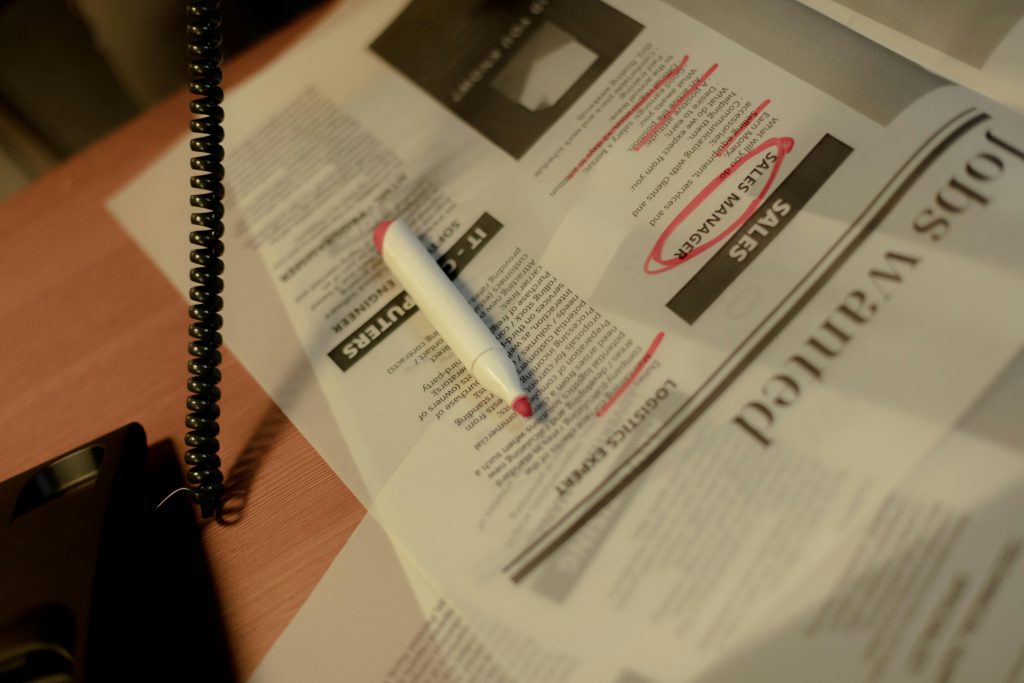Job searching can feel like a full-time job, especially when you’re applying for multiple roles and juggling various deadlines. The key to staying efficient and productive is having the right tools in place. A professional job tracker can help you manage your applications, interviews, and follow-ups while reducing overwhelm.
In this blog, we’ll explore how a professional job tracker can save you time, reduce the chaos of job hunting, and help you stay organised, ultimately maximising your job search productivity.
How a Professional Job Tracker Saves Time and Reduces Application Overwhelm
Centralising Your Job Search Efforts
Applying to multiple jobs means dealing with various company websites, emails, interview invitations, and deadlines. Without a central system, you’re likely to waste time switching between tabs, digging through emails, or rewriting the same information.
A job tracker brings all of this into one space. It acts as a personal dashboard that holds every detail of your job search. Instead of juggling sticky notes and emails, you can see all your job activities at a glance. From application dates to interview prep, everything is stored and sorted in one location.
This not only makes the process less stressful but also gives you a sense of control. Knowing where you’ve applied, when to follow up, and which applications are pending helps streamline your effort and increases efficiency.
Reducing the Risk of Missed Submission Deadlines and Opportunities in 2025
Missing an application deadline or forgetting a follow-up email could cost you an interview or even a job offer. A job tracker helps prevent that. By setting reminders and logging dates, it keeps your job search on schedule.
You can add alerts for application deadlines, interview times, or dates to follow up with recruiters. Some tools even integrate with your calendar to keep you notified.
When you’re managing ten or more job applications, things can slip through the cracks. A tracker reduces that risk by acting as your second brain. It ensures you’re never too late to apply, follow up, or prepare.
By staying organised and on top of your responsibilities, you reduce stress and position yourself as a proactive candidate—something hiring managers appreciate.
Using a Professional Job Tracker to Track Applications, Interviews, and Follow-Ups
Track Your Job Applications with Ease
The first and most important function of a professional job tracker is logging your applications. Start by recording essential information such as:
- Company name
- Position title
- Date applied
- Application method (e.g., portal, email, LinkedIn)
- Application status (e.g., sent, under review, rejected, offered)
- Deadline (if applicable)
Having all this in one place saves time when you need to reference a specific role or tailor a follow-up message. Instead of rereading job descriptions or digging through emails, you’ll have all your notes on hand.
As you continue applying, your tracker also becomes a powerful tool for reflection. You’ll begin to spot trends—like which roles or companies are most responsive—and you can use that data to refine your strategy.
Stay on Top of Interview Schedules and Follow-Ups
Securing interviews is a major milestone in the job search, but staying organised during this phase is just as important. A job tracker can be your best ally here. Use it to log interview dates, times, formats (in-person, phone, or video), and names of interviewers.
You can even include prep notes, links to company websites, or reminders about specific questions you want to ask. This level of preparation boosts your confidence and performance.
And don’t forget the follow-up. Sending a thank-you email after an interview is a small gesture that makes a big impression. With a job tracker, you can set a reminder to send your follow-up within 24 hours. Over time, these small, consistent actions will elevate your professionalism and help you stand out.
Frequently Asked Questions
How can a job tracker help me stay organised during my job search?
A job tracker centralises all your job search activities, allowing you to track applications, interviews, and follow-ups in one place, making it easier to stay on top of deadlines and prioritise your efforts.
What are the benefits of using a job tracker for follow-ups?
A job tracker allows you to set automated reminders for interviews, application deadlines, and follow-ups, ensuring you never miss an important task.
Can a job tracker help me save time in my job search?
Yes! By centralising your applications, reminders, and job search activities, a job tracker helps you avoid the chaos of scattered notes and provides a clear overview of your progress.
How can a job tracker help me with interview preparation?
A job tracker keeps all interview details organised, from dates and times to preparation tasks, so you can stay organised and on schedule during your interview process.
What should I track in my job application tracker?
You should track company names, job titles, application dates, interview schedules, follow-up reminders, and the current status of each application to stay organised.
Final Thoughts
A productive job search isn’t about sending hundreds of resumes. It’s about sending the right ones and following up at the right time—and a professional job tracker helps you do just that.
By using a job tracker, you eliminate confusion, stay on top of your tasks, and bring structure to what often feels like an unpredictable process. It allows you to measure your work progress, adapt your strategy, and stay motivated as you move forward.
Whether you’re applying to five jobs or fifty, the clarity and control a job tracker provides can turn a scattered, stressful job hunt into an efficient, goal-driven process.
Start using one today, and you’ll see how much more confident and productive your job search can become.










